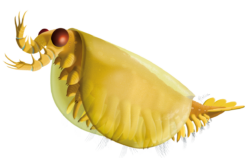We have long been living in spectacular times. Science does not proceed outside of it – quite on the contrary, it is directly exposed to and challenged by our social contradictions. Increasingly, demagogy, personal interests and the marketisation of scientific publication threaten to bias the timing and direction of scientific output, and to correlate scientific significance with financial means. As a response, members of the scientific community have set up or reinforced ethical organizations, such as the Committee on Publication Ethics (COPE), and more journals have started promoting transparent peer-review and explicit ethical statements regarding data availability or author contribution, for instance. However, either editorial boards or the COPE lack tools to enforce respect of these rules (e.g., authors can refuse to provide access to data, regardless of explicit publication statements), and a framework for a more objective assessment and control of the quality of peer-review is still missing. I believe, therefore, that scientists should explicitly and actively stand for some fundamental ethical principles, primarily:
• Non-profitability
Quantity and quality of scientific output should be a factor of merit rather than financial means, which are not necessarily correlated. Journals should not use their apparent influence as an incentive for higher publication fees. At the individual level, a scientist should refrain from using funds to obtain access to journals with higher impact as a way to inflate their publication record.
Example: I will not overlook criticism on a given research pathway because it could mean fewer chances to obtain larger funds for publication fees.
• Deontology
I borrow here more specifically the French definition of this term, which can be summarized as professional duty: the deontology of a scientist is to fulfill their job to the extent and with the quality expected from them.
Example: If I accept to review a paper, I will perform the work in its entirety and do any relevant research. It is better to decline to review than to provide a superficial critique or judgement about an area of expertise entirely outside of my own.
• Integrity
Scientific output should not be influenced by any affect, relationship or professional or personal factors. A scientist should not be the instigator or subject of favours or disfavours based on level of conceptual agreement or working affinities. Professionals or students should be hired fairly and based on merit and suitability.
Example: When reviewing a study, my assessment will be influenced neither by my relationship to the authors nor by any gain that a certain decision would entail.
• Magnanimity
Science is based on refutability, and thus on criticism. Yet criticism does not equate competition, even if external factors – especially in private research – may create competitive working conditions. To the extent that all partake to a better understanding of the universe using the scientific method, scientists should be unbiased but magnanimous to one another, and aim at emending research output rather than replacing it – unless the right critical approach requires it.
Example: The primary goal of my review will not be to pass or fail a study, but to contribute myself to the investigation by trying to constructively improve the research.
Presence on Internet communication media and ResearchGate
The cumbersomeness of some tools can outweigh their efficiency. The lack of perspective or critical filter, as well as the overwhelming quantity of information are aspects that have always made “social” media unattractive to me. As devices for immediateness, pathos and opinion, I find that they tend to occupy a much greater importance than they ought to, and are often ill-suited to good, clear scientific popularization. While there is also plenty to say about some of the merits of these media, I decided to stay entirely away from them and to use my time differently.
Based on my right of data protection as well as copyright enforcement, I also asked the for-profit company ResearchGate GmbH and its website researchgate.net to stop gathering data related to my publications for commercial purposes.
